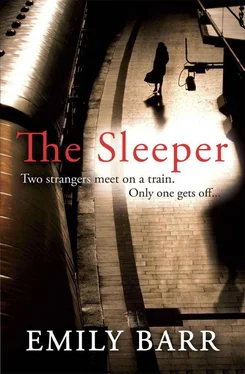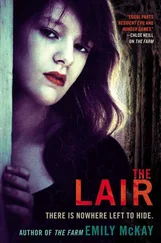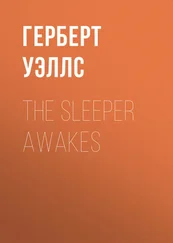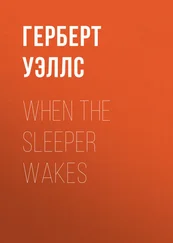Ellen chuckles. ‘No, Lara, I don’t. I never wanted them, actually. I was married for a while, but I held out against starting a family because it wouldn’t have been right, and I knew that, really. Then when I met Jeff, that time had passed. I’m glad I never had them. I wouldn’t be able to live this schizoid life if I did. I guess you don’t either?’
I look at my coffee. The frothy milk has gone from the top of it now. This conversation, even with so friendly a stranger, is never easy. ‘We tried for years. Me doing this job kind of marks the fact that we failed.’ I look at her face and quickly add: ‘It’s fine, though. I mean, it really is. I was never that maternal or broody. It was Sam, more than me. I would have loved a baby, of course I would, but then it doesn’t happen and the whole quest takes over your life, becomes this massive obsession, and every aspect of your life is suddenly governed by injections and cycles, and everyone asks you about it all the time – “So are you two going to be starting a family?”, as if that’s not the only thing the two of you ever talk about – and Sam could, actually, think and talk about nothing else, and by the time we did give up, I felt nothing but the most gigantic relief. I’m happy to be moving on.’
‘Well, there you go.’ She lifts her coffee. ‘Cheers, Lara. Welcome to your new life. Joyous moving-on to you.’
We stand, gather our bags and set off together through Paddington station, at the beginning of the Monday-morning rush hour, towards the Tube, and work, and a London life.
chapter four
The working day is the easy part. I spend the first couple of hours meeting people, working out where things are and getting to grips with the project. It is going to be an interesting one, just behind Tate Modern: I will be turning industrial warehouses into flats and a restaurant. I start with the basics of the project, running over each step in my head. It’s in an area with a high water table, a strong likelihood of archaeological complications, and a strong community watching our every move.
I am good at this, and I slip back into it easily and professionally. Despite my unexpectedly intimate conversation with Ellen this morning (which has left me feeling a little exposed, and which I regretted instantly), or perhaps because of it, I am determinedly friendly but distant with my new colleagues, many of whom are younger than me.
I leave the office at six thirty, pleased with myself.
Then I am cutting through Covent Garden, heading to my sister’s flat. She lives in a street that is jarringly perfect, if you like to live in the middle of a city. It is early in the evening, the sun is shining, and the streets are busy with released workers and tourists and students, as well as assorted unplaceable people. I feel the buzz in the air, and although I love Falmouth and Cornwall, I know in my heart that I am a Londoner. I am a Londoner, and I have arrived home, and even the fact that I am about to have to negotiate Olivia cannot dent the upsurge of happiness.
For a second I picture myself in a book. It is a children’s picture book, and its name is Lara in London . I am drawn in a stylised way, like a woman in a classy little fashion tome from the thirties, with a nipped-in waist and a chignon, and I am striding confidently through the city having adventures. There is no particular rhythm to these adventures, because Lara in London is a guide to the city’s landmarks more than anything else. Right now, I am tapping, in my glorious shoes, around the edge of Covent Garden Market, past people determinedly shivering with beers at outside tables and a street entertainer juggling chairs on a red carpet, with a crowd gathered watching him. I wave to him as I pass, feeling so powerful in myself, all of a sudden, that I am sure I can make him wave back and ruin his act. He does not even see me, of course, but my mind instantly transforms him into his illustrated self, his stubble shaded in, his round cheeks exaggerated.
Marks and Spencer, opposite the Tube, is my first destination. As I buy wine and olives and clotted cream that I will not even attempt to pretend I brought all the way from Cornwall, I tell myself that it will be all right. I tell myself so firmly that I feel I can make it true. Olivia said I could stay with her, during the week, indefinitely. She would not have said that if she was not planning to be nice.
Unfortunately, she would have done exactly that, and I know that perfectly well. I have not seen my sister for a year and a half, because we went to Sam’s family last Christmas and by the time we got to my parents’ on December 28th, she had gone somewhere, ‘away with friends’.
I squash my dread with internal platitudes. Since we have had a break from one another, it will probably be fine. A break was exactly what our relationship needed. We were never friends as children, or teenagers, and as young adults we fell out catastrophically: all this is undeniably true. She has no idea about the big event of my life, but then neither does my husband. We have never been friends, not even in the most shallow of ways. She was born hating me; I suppose I must have done something from those earliest of days to provoke that, but I never meant to. Her hatred has been unwavering and true, and she has behaved in a way that has left me no choice but to hate her back.
I have always been sceptical of other people’s much-vaunted sisterly closeness; in fact, I cannot help suspecting that it is all a sham, that underneath every pair of loved-up sisters is some variant of Olivia and me, constantly nursing grievances that started to pile up on the day the second child was conceived.
Now, however, we might be able to construct a new relationship. We are in our thirties, and we could make it work. There is a chance, I insist to myself as I put my debit card in the machine and ask for cashback, that this will happen. Perhaps I will soon be able to say the words ‘my sister’ without the stab of bitter distaste that accompanies them at the moment. This thought makes me dart off to grab a bunch of white roses from a display. I pay for them separately, with my cashback money. I look apologetically at the man behind me in the queue, wondering whether technically I should have rejoined it at the back before making a second purchase. He is a jumpy-looking man in his forties, and he nods and says ‘nice flowers’ in an Antipodean accent. I smile my thanks and try to shrug off the sudden feeling that I have met him before. This is London: of course I haven’t.
Once in Olivia’s life she said sorry to me. Soon afterwards we settled back into our habitual disdain for one another. She got over her misdeed conveniently quickly. It was the only time she did something concrete to me, something everyone knew about, something I could point to and say: ‘You did that.’ Yet if I were to mention it now, she would laugh at me.
Her street is different from the way it was last time I was here. It goes straight off Long Acre, and it is now achingly hip. There is an enormous vintage clothes emporium, a yoga centre, an entrance to a new courtyard full of upmarket shops. I walk down to the end and eye up the pub there. It looks friendly. The house next to it has millions of geraniums in window boxes, with creepers trailing down between them. A quick shot of vodka would give me courage.
I do not do it, of course, much as I would like to be that sort of woman. I walk back up to Olivia’s mansion block, the clear evening sun suddenly cold on my cheeks. The outside of the building has been cleaned up since I was last here, and it is glowing, redbrick and classic. She bought this place shrewdly, when she got her first job, at a time when London was on the cusp of spectacular unaffordability.
Читать дальше










